Jinchang Zhou
From MOOC to MAIC: Reshaping Online Teaching and Learning through LLM-driven Agents
Sep 05, 2024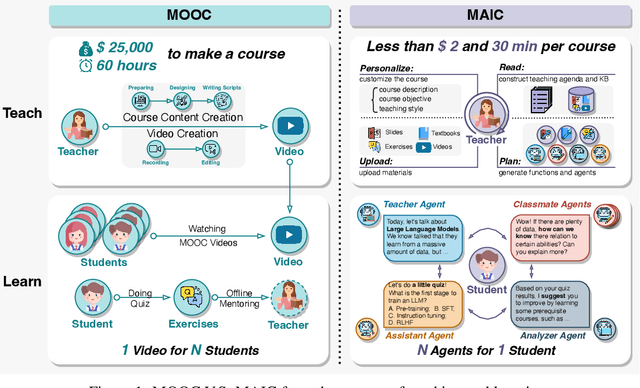

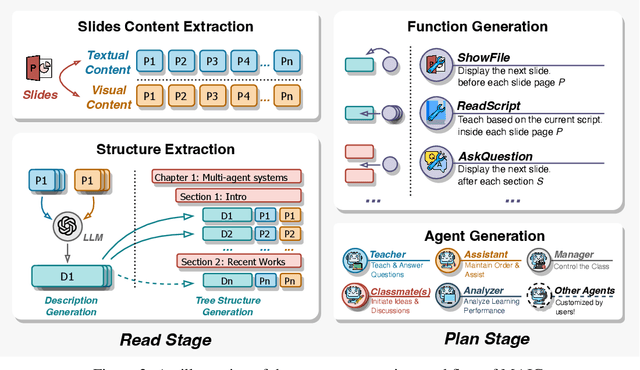
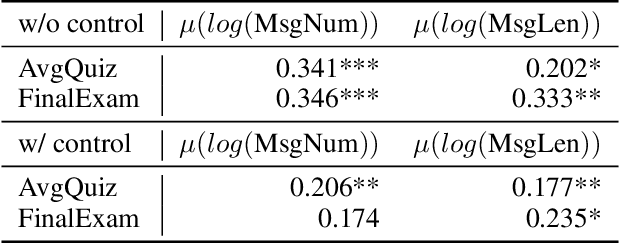
Abstract:Since the first instances of online education, where courses were uploaded to accessible and shared online platforms, this form of scaling the dissemination of human knowledge to reach a broader audience has sparked extensive discussion and widespread adoption. Recognizing that personalized learning still holds significant potential for improvement, new AI technologies have been continuously integrated into this learning format, resulting in a variety of educational AI applications such as educational recommendation and intelligent tutoring. The emergence of intelligence in large language models (LLMs) has allowed for these educational enhancements to be built upon a unified foundational model, enabling deeper integration. In this context, we propose MAIC (Massive AI-empowered Course), a new form of online education that leverages LLM-driven multi-agent systems to construct an AI-augmented classroom, balancing scalability with adaptivity. Beyond exploring the conceptual framework and technical innovations, we conduct preliminary experiments at Tsinghua University, one of China's leading universities. Drawing from over 100,000 learning records of more than 500 students, we obtain a series of valuable observations and initial analyses. This project will continue to evolve, ultimately aiming to establish a comprehensive open platform that supports and unifies research, technology, and applications in exploring the possibilities of online education in the era of large model AI. We envision this platform as a collaborative hub, bringing together educators, researchers, and innovators to collectively explore the future of AI-driven online education.
Simulating Classroom Education with LLM-Empowered Agents
Jun 27, 2024



Abstract:Large language models (LLMs) have been employed in various intelligent educational tasks to assist teaching. While preliminary explorations have focused on independent LLM-empowered agents for specific educational tasks, the potential for LLMs within a multi-agent collaborative framework to simulate a classroom with real user participation remains unexplored. In this work, we propose SimClass, a multi-agent classroom simulation framework involving user participation. We recognize representative class roles and introduce a novel class control mechanism for automatic classroom teaching, and conduct user experiments in two real-world courses. Utilizing the Flanders Interactive Analysis System and Community of Inquiry theoretical frame works from educational analysis, we demonstrate that LLMs can simulate traditional classroom interaction patterns effectively while enhancing user's experience. We also observe emergent group behaviors among agents in SimClass, where agents collaborate to create enlivening interactions in classrooms to improve user learning process. We hope this work pioneers the application of LLM-empowered multi-agent systems in virtual classroom teaching.
TableLLM: Enabling Tabular Data Manipulation by LLMs in Real Office Usage Scenarios
Apr 01, 2024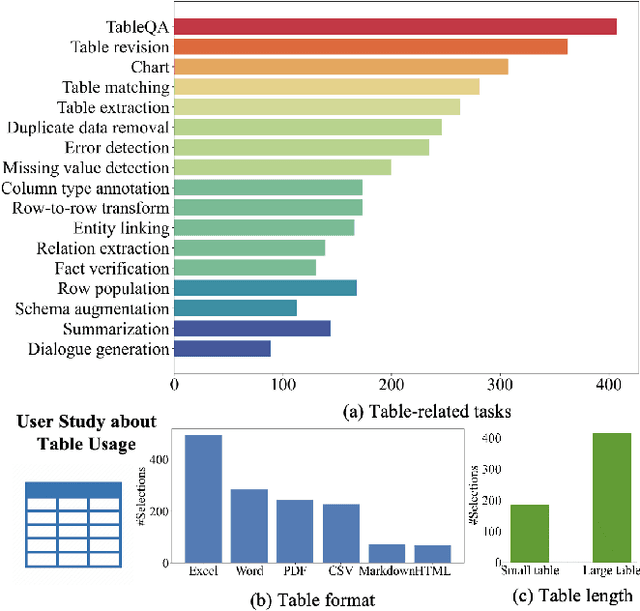
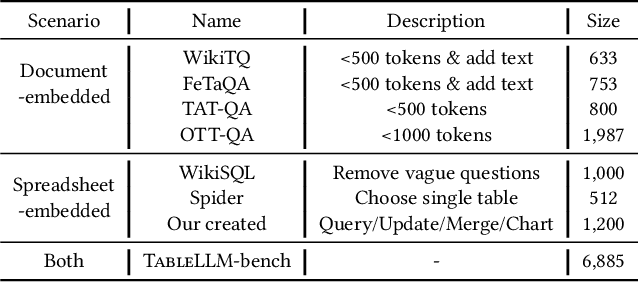
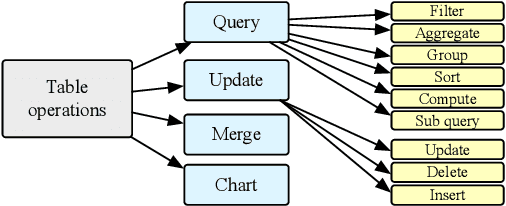
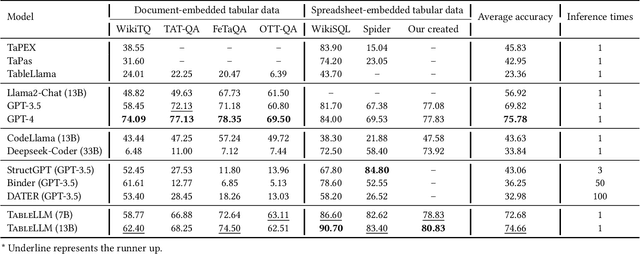
Abstract:We introduce TableLLM, a robust large language model (LLM) with 13 billion parameters, purpose-built for proficiently handling tabular data manipulation tasks, whether they are embedded within documents or spreadsheets, catering to real-world office scenarios. We propose a distant supervision method for training, which comprises a reasoning process extension strategy, aiding in training LLMs to understand reasoning patterns more effectively as well as a cross-way validation strategy, ensuring the quality of the automatically generated data. To evaluate the performance of TableLLM, we have crafted a benchmark tailored to address both document and spreadsheet formats as well as constructed a well-organized evaluation pipeline capable of handling both scenarios. Thorough evaluations underscore the advantages of TableLLM when compared to various existing general-purpose and tabular data-focused LLMs. We have publicly released the model checkpoint, source code, benchmarks, and a web application for user interaction.Our codes and data are publicly available at https://github.com/TableLLM/TableLLM.
 Add to Chrome
Add to Chrome Add to Firefox
Add to Firefox Add to Edge
Add to Edge